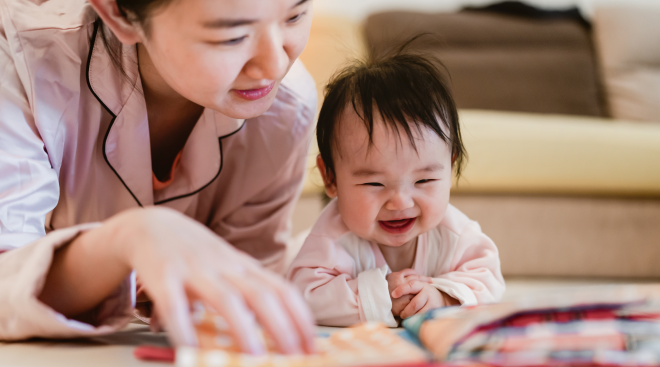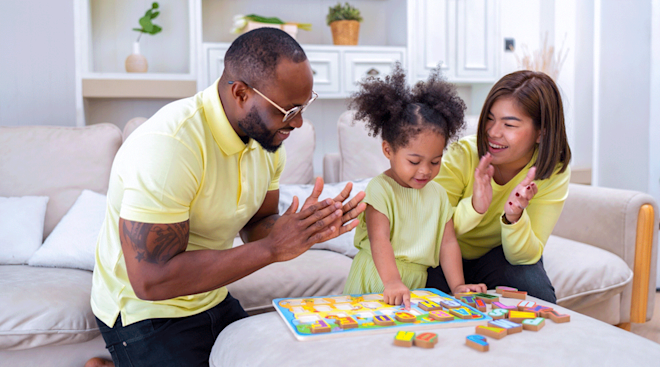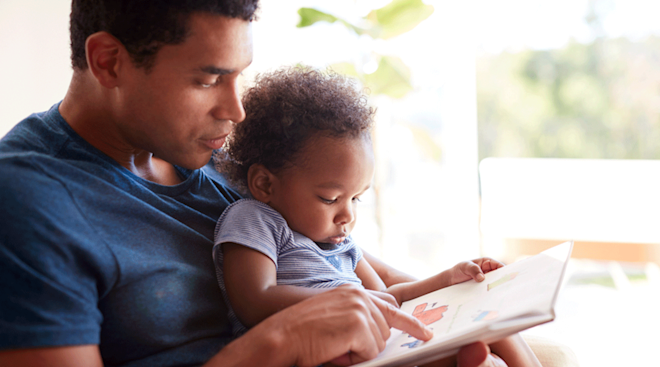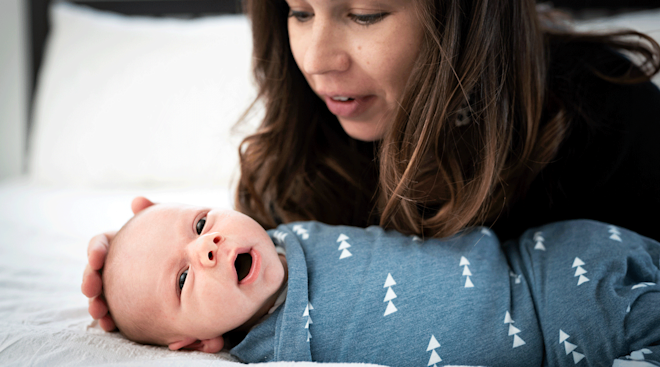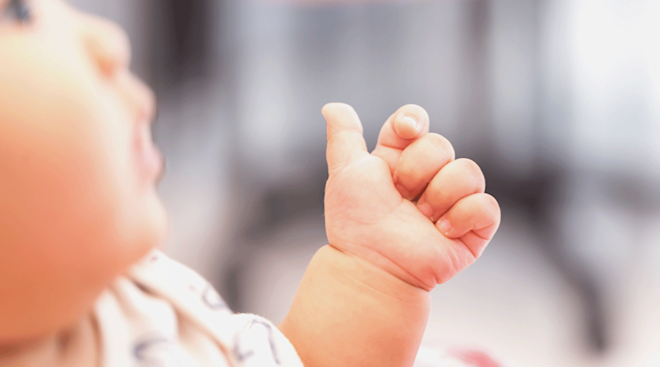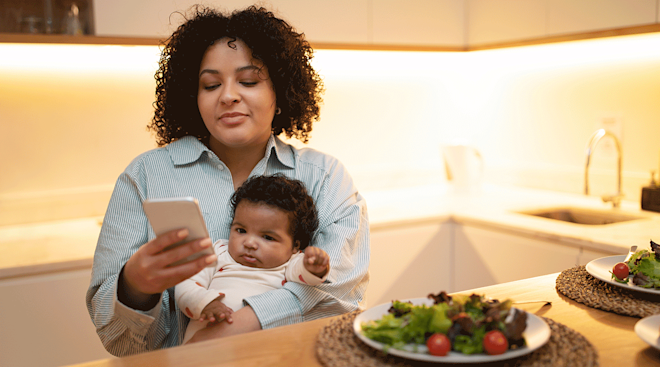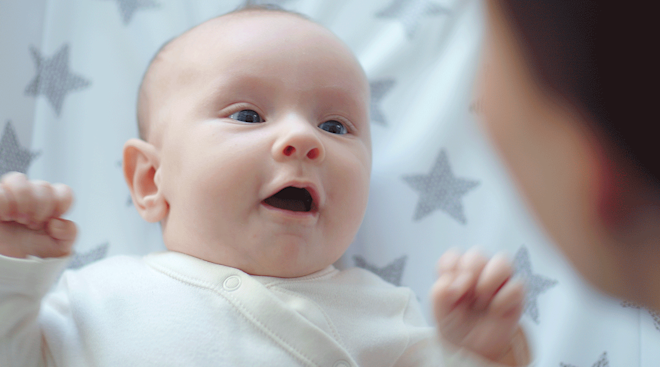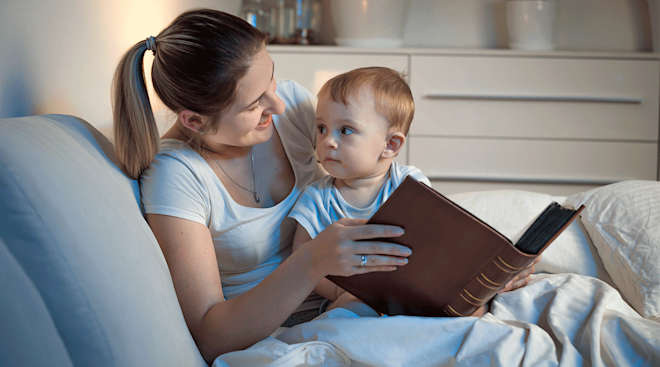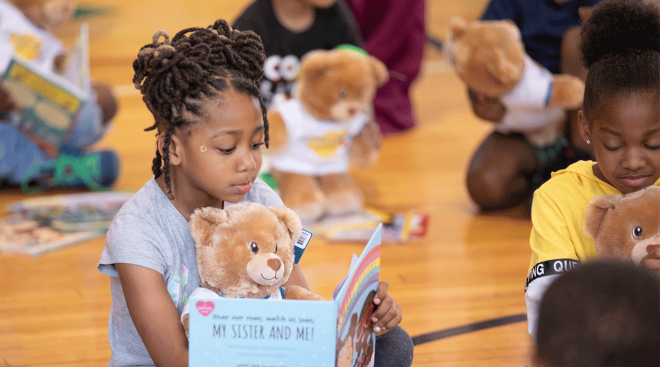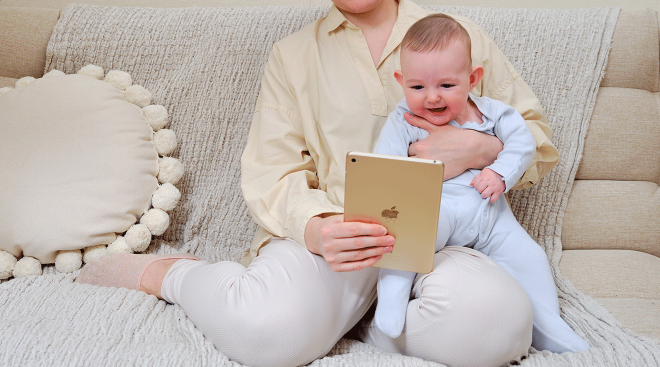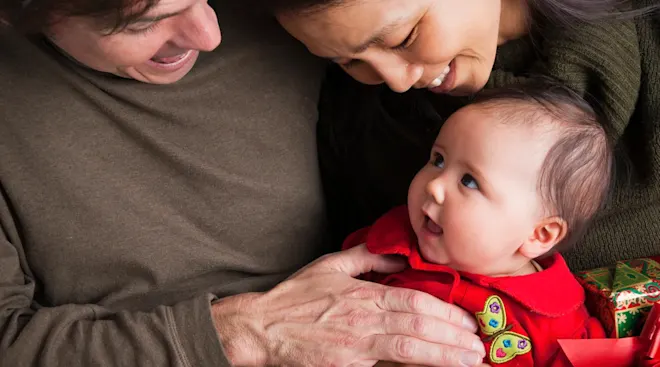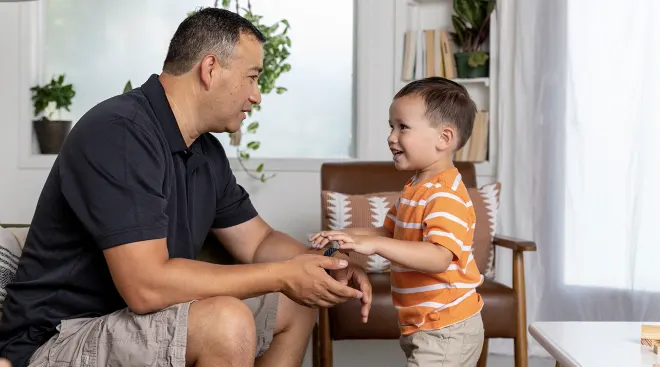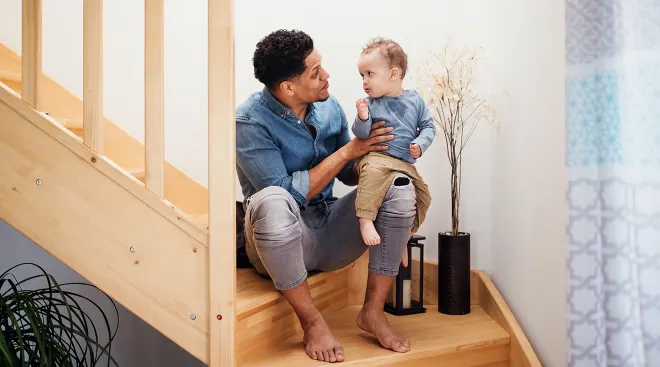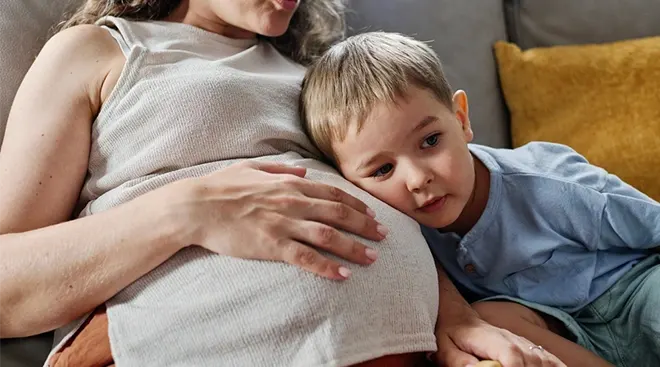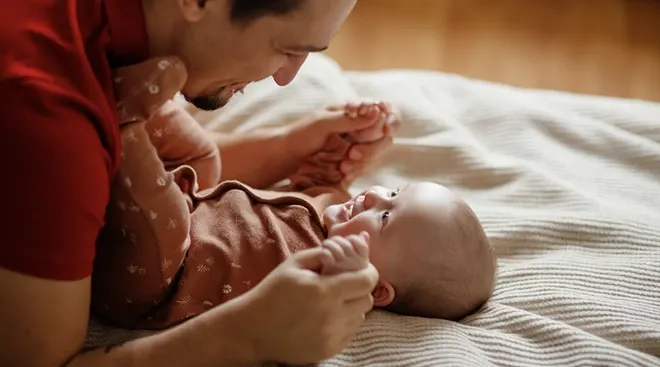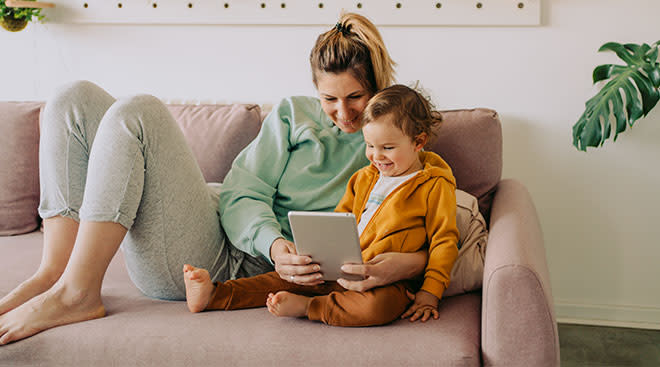How Can I Help Baby Learn to Speak?
The best way to help your little one along the language path is just to spend time interacting with them. New York City pediatrician Preeti Parikh, MD, says every baby is different, but during the first year, you probably won’t hear identifiable consonant sounds until they’re about 9 months old and words besides “mama” and “dada” until 12 months. It may seem silly to babble away to someone who can’t talk back, but time and time again, studies have shown that baby is constantly learning from what you say. Here are some other tips to ensure baby morphs into a verbal genius in no time.
A University of Iowa and Indiana University study found that by listening and responding to whatever you think baby is saying, you’re letting them know they can communicate, leading baby to make more complex sounds more quickly.
Though terms like “serendipity” or “assiduous” may seem out of baby’s grasp right now, starting with the more complicated words early can help baby pick them up quicker. It may take hundreds of exposures to big words, but the sooner you start, the sooner baby will learn them. Studies show 18-month-olds learn an average of two to five new words per day.
While educational programs can serve as a supplement (and a well-deserved rest for parents) for toddlers and older children, the American Academy of Pediatrics advises against any screen time for little ones 18 months and younger (aside from video chatting with family). A study of the popular video series “Baby Einstein” found that children who watched the DVDs regularly understood an average of six to eight fewer words than children who did not. Even the smartest TV shows are no substitute for you.
Hope that baby will be a globetrotter some day? Research shows that children’s language-learning ability diminishes greatly after age 10, so it’s never too early to start learning a new one. Children who are exposed to multiple languages early on often go on to speak them fluently later in life.
Language doesn’t have to be serious business. Have fun with baby—sing songs, learn nursery rhymes or just make sounds—anything to expose them to new ways to use words. Reading books is crucial too.
Early language experience is crucial, so make sure that baby’s hearing you clearly. The sooner any potential hearing problems are detected, the better.
Please note: The Bump and the materials and information it contains are not intended to, and do not constitute, medical or other health advice or diagnosis and should not be used as such. You should always consult with a qualified physician or health professional about your specific circumstances.
Preeti Parikh, MD, is a pediatrician at Pediatrics of New York, an assistant clinical professor of pediatrics at Mount Sinai School of Medicine and the medical director of programming at HealthiNation.com
University of Iowa, Parents, Listen the Next Time Your Baby Babbles, August 2014
University of Missouri, Babies Learn Words Differently as They Age, MU Researcher Says, September 2014
American Academy of Pediatrics, Media and Young Minds, November 2016
Navigate forward to interact with the calendar and select a date. Press the question mark key to get the keyboard shortcuts for changing dates.
































